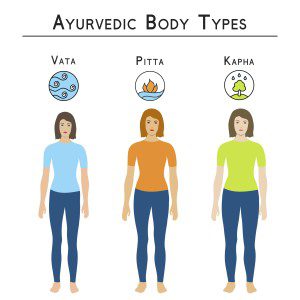 Ayurvedic medicine — also known as Ayurveda — is the world’s oldest holistic (whole-body) healing system. It was developed thousands of years ago in India.
Ayurvedic medicine — also known as Ayurveda — is the world’s oldest holistic (whole-body) healing system. It was developed thousands of years ago in India.
It holds that health and wellness rely on a balance between the mind, body, and spirit.
The primary focus of Ayurvedic medicine is to promote good health, rather than fight disease. But there is effective treatment for specific health problems.
In the U.S., Ayurveda is considered a form of complementary and alternative medicine (CAM).
Ayurvedic Concepts
According to Ayurvedic theory, everything in the universe — living or not — is connected. Good health is achieved when your mind, body, and spirit are in harmony with the rhythms of nature. A disruption of this harmony can lead to poor health and sickness.
For followers of Ayurveda, anything that affects your physical, spiritual, or emotional well-being can cause you to be balanced – or imbalanced. Some things that can cause poor health include:
- Genetic or birth defects
- Unhealthy lifestyle
- Injuries
- Climate and Seasonal Changes
- Age
- Unprocessed Emotions
- Environmental toxins or disturbances
- Karma
- Disharmonious relationships
Your unique physical and psychological characteristics combine to form your body’s constitution, or prakriti. Your prakriti is believed to remain the same for your entire life. However, it can be distorted by a number of factors.
Every person is made of a combination of five basic elements found in the universe:
- Space/Ether
- Air
- Fire
- Water
- Earth
These elements combine in the human body to form three life forces, or energies, called doshas. They control how your body works. The three doshas are:
- Vata dosha (space and air)
- Pitta dosha (fire and water)
- Kapha dosha (earth and water)
Everyone inherits a unique mix of the three doshas at time of conception. One dosha is usually more dominant in any given person, although all three are always present. Each dosha controls one of the three operating principles that govern the body: movement, metabolism and containment. The likelihood of getting sick is linked to the balance of your doshas.
 Vata Dosha
Vata Dosha
Vata dosha (space and air) is thought to be the most powerful of all three doshas. It controls all movement in the body - starting with how cells divide. It also controls your:
- Mind
- Breathing
- Blood Flow/Circulation
- Heart Function
- Ability to get rid of body waste through the intestines/Elimination
- Nervous system
 Pitta Dosha
Pitta Dosha
Pitta (fire & water) governs all metabolic processes. It is the principle of heat at work, transforming what comes into the body into usable material & information. Pitta controls:
- Digestion and Metabolism
- Hormone Balance
- Functioning of the eyes.
- Healthy glow of the skin.
- Desire, drive, decisiveness, spirituality.
- Healthy, toxin-free blood
 Kapha Dosha
Kapha Dosha
The kapha dosha (water and earth) governs the principles of structure, liquidity and lubrication at work in the body. Kapha dosha controls the following:
- Structure
- Musculature
- Body strength and stability
- Immune system (lymph)
- Moisture for nose, mouth, eyes and brain
- Moisture of the stomach lining
- Lubrication of the joints
Things that can disrupt this dosha are:
- Eating dried foods
- Chemicals
- Eating too soon after a previous meal
- Fear
- Grief
- Staying up too late
- An erratic schedule
- Too much stimulation
- Cold
Things that can disrupt this dosha are:
- Eating sour foods
- Eating Spicy foods
- Spending too much time in the sun
- Stimulants
- Competition
- Heat
- Alcohol
- Overwork
- Missing Meals
Things that can disrupt this dosha are:
- Daytime Sleeping
- Overeating
- Sugar/Carbohydrates/Sweets
- Too much salt
- Greed
- Not enough exercise
- Cold and Damp Weather
- Grief
- Routine
If vata dosha is your main life force, you are more likely to develop:
- Anxiety
- Fatigue
- Asthma
- Heart Disease
- Nervous system disorders
- Rheumatoid arthritis
- Dry Skin
If pitta dosha is your main life force, you are more likely to develop:
- Anger and negative emotions
- Crohn's disease
- Heart disease
- Heartburn
- Diarrhea
- High Blood pressure
- Infections
If kapha dosha is your main life force, you are more likely to develop:
- Asthma and other respiratory disorders
- Cancer
- Diabetes
- Obesity
- Nausea after eating
- Lethargy
- Food Cravings
Treatment depends on your unique prakriti and the nature of your doshic imabalance.
Ayurveda's main goal is to periodically cleanse the body of undigested food, toxins, and wastes - called Ama, which accumulates in the body and lead to illness and the deterioration of vitality. Daily and seasonal practices are performed for ongoing cleansing and fortification. When combined with a more significant cleansing and rejuvenation process called Panchakarma (which should be done annually) the root causes of imbalance can be eliminated and health maintained.
Panchakarma may include:
- Massage
- Medicinal therapies
- Herbal medicines
- Use of enemas, laxatives, or purgatives to cleanse the intestines
- Rest and relaxation
- Food as medicine
Other health promoting treatments may also be recommended to:
- Reconnect with nature
- Restore Balance
- Establish or improve spiritual connection
- Boost immunity
Treatments may include:
- Aromatherapy
- Color therapy
- Breathing exercises
- Dietary changes
- Herbs, vitamins, & minerals
- Plant-based oils and spices
- Lifestyle changes
- Meditation
- Stretching
- Yoga
- Sleep/relaxation



